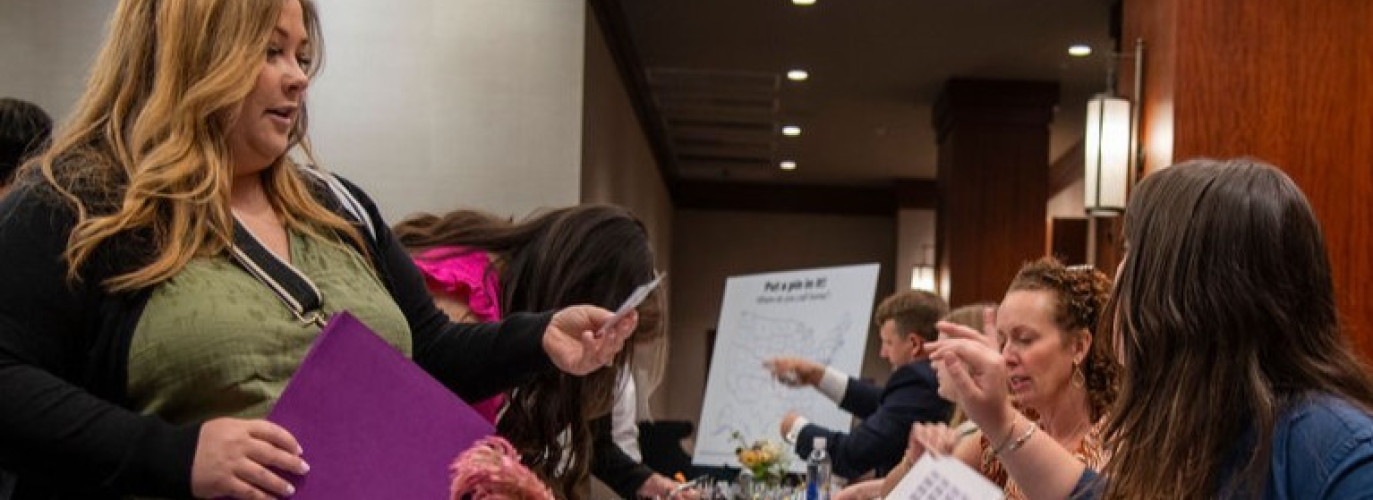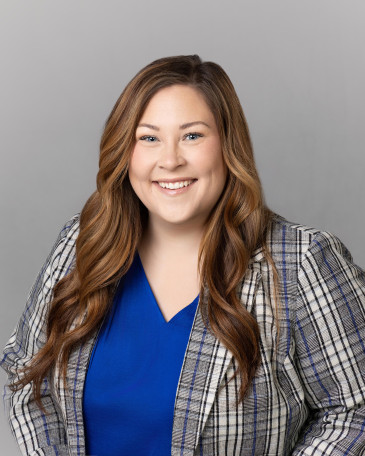Oct 03, 2024

By Rick McNary
In our ongoing effort to support rural communities, Kansas Farm Bureau (KFB) and Shop Kansas Farms (SKF) sent Kylee Stout, KFB’s business development manager, to the National Rural Grocery Institute Summit in Montgomery, Ala. this summer.
Hosted by the Hunger Solutions Institute out of Auburn and the Rural Grocery Institute out of Kansas State University, the summit brought stakeholders from across the nation to showcase creative efforts to solve the challenge of rural grocery stores.
Stout learned that when rural grocery stores struggle or close, they often leave behind a food desert. A food desert is described as an area that has limited access to plentiful, affordable and/or nutritious food. An example would be a local gas station that offers food but very little of what they offer is nutritious.
“As we work with farmers, ranchers and growers in Kansas, we see the opportunity to connect those people who grow healthy food to the local grocery stores,” Stout says. “That’s not easy because grocery stores need dependable quantities and deliveries of the produce they can purchase at wholesale prices.”
Stout shared that through work SKF and KFB are doing in Sumner County with the Border Queen Harvest Hub (BQHH), they’re already seeing growth.
“Producers have come together to open their own storefronts where they sell on consignment,” she says. “In our Border Queen Harvest Hub we’ve seen Ellis Island open in Belle Plaine and Hagar Acres in Caldwell. These stores offer fresh, nutritious and locally grown food to consumers.”
Stout also shared some innovative ideas that were surfaced at the conference.
“I learned about one 24-hour grocery store where customers pay an annual membership fee of $75 and were given a key-code access to the store. You paid on the honor system, but there were security cameras and since each customer has a unique code, it’s easier to know who is in the store and at what times.”
She shared a benefit of this set up is there are no labor costs because the farmers stock the stores when they have the product and staff aren’t needed to manage cash registers.
This model can be a win-win for customers and growers.
“Many consumers want a farmers market that is open every day but instead only have access to a big-box store or a gas station,” Stout says. “Farmers are traditionally paid pennies on the dollar for their products, so it becomes a battle of offering high-quality food at an affordable price that consumers can afford, and farmers can make a living on.”
As KFB and SKF work to support and prosper rural communities across our state, we place high priority on providing solutions that prosper local farmers, ranchers and growers who want to do direct-to-consumer sales and the consumers who want to purchase locally grown, healthy food. Those solutions require creativity and collaboration, which is something our people in rural Kansas know how to do well.
We invite you to look at the Rural Grocery Initiative. They offer many ways to get involved and can provide support to rural grocers through a nationwide network of resources.

